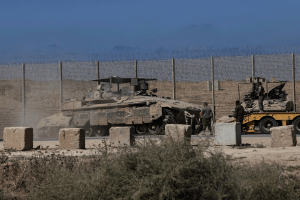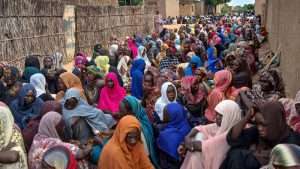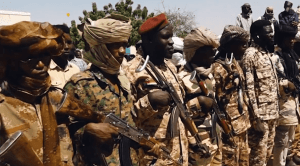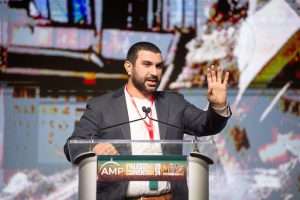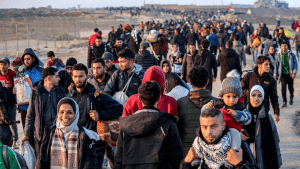Morocco: no abstinence of support for Gaza during Ramadan
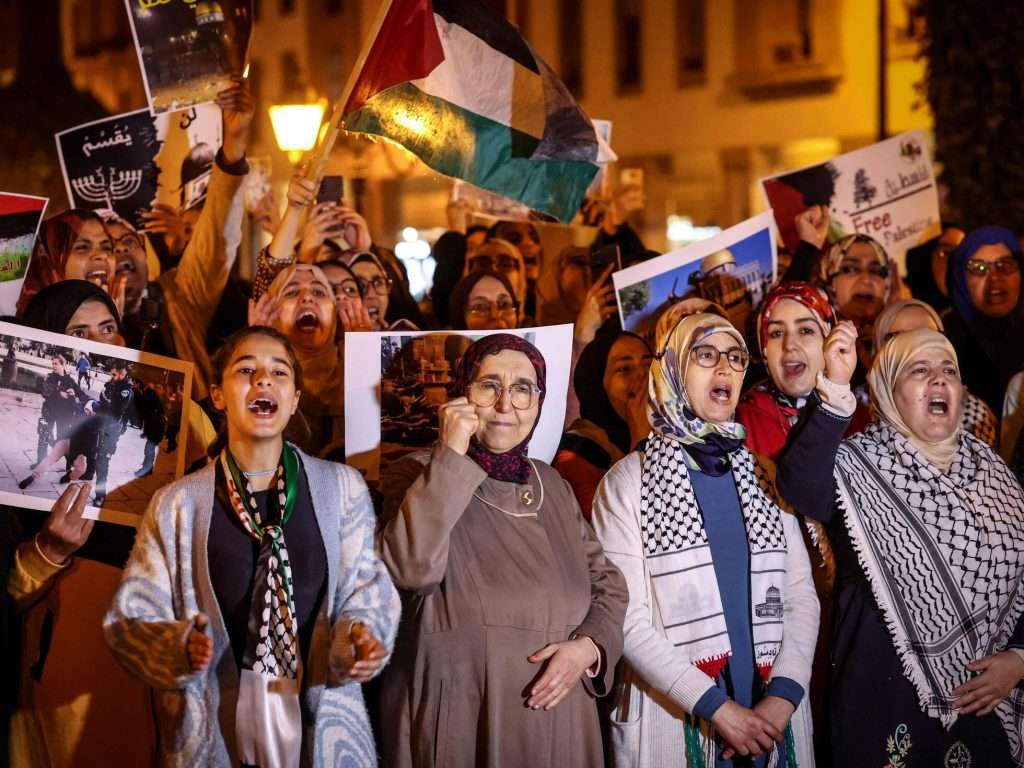
Moroccans continue their call for an end to Morocco’s normalisation with Israel throughout Ramadan, according to The New Arab and agencies.
In central Rabat, dozens of Moroccans carry prayer mats under one arm and pro-Palestine signs under the other, after attending the Tarawih prayers on 13th March, integrating their Ramadan rituals with calls for peace.
Outside parliament, the crowd called for Morocco to revoke its ties with Israel while criticising Israel’s manufactured famine in Gaza.
A member of the National Group Against Normalisation, Mohamed Al-Ghafri declared that Morocco’s ties “with the criminal Zionist entity” must be cut due to Israel’s “unprecedented crimes in the history of humanity.” Al Jazeera’s daily death toll reveals that at least 31,490 Palestinians have been killed in the Israel-Hamas war.
However, despite the pre-war protests and objections to Morocco’s association with Israel, Rabat shows no urgency to cut ties with Tel Aviv.
The Abraham Accords – which enabled the aid trucks to enter Gaza via Israel – also secured US recognised Moroccan sovereignty over Western Sahara, hence the reluctance to sever connections with Israel.
WATCH: Morocco’s latest move against normalisation with Israel explained
Two days into Ramadan, on 12th March, a 40 ton shipment of UN humanitarian aid entered Gaza from Morocco, utilising the Kerem Shalom border crossing from Israel for the first time since 7th October, Reuters reported.
Washington’s envoy to Rabat, David T. Fischer took to X (formerly Twitter) to state the “Abraham Accords continue to make a difference in the world,” and that the agreement “made it possible” for the UN’s delivery to reach those in need.
READ: Giorgio Cafiero: What’s in store for the Abraham Accords?
While the successful entrance of food trucks is vitally important, this instance it is but a scratch on the threat of famine in Gaza.
The Guardian reported that a 14 truck convoy, carrying 200 tons of food was looted by “a large crowd of desperate people,” after the trucks were held for several hours at an Israeli army checkpoint, on 5th March.
Aid officials said that Israel’s insecurity, continuous combat, fruitless bureaucracy and restrictions on movement have resulted in Palestinian civilians receiving a fraction of what they need.
In late February, 104 civilians were killed and 760 injured, trying to access food from 18 aid trucks as the Israeli Defence Forces (IDF) opened fire on the crowds, CNN reported.
An Israeli military spokesperson claimed that the crowd of starved Palestinians instigated the attack by “looting supplies” and causing “an event against our forces.”
NA/Reuters/The Guardian/CNN/Al-Jazeera
Want to chase the pulse of North Africa?
Subscribe to receive our FREE weekly PDF magazine






